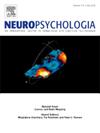得失框架和货币金额对道德决策的交互作用:来自行为学和erp研究的证据
IF 2
3区 心理学
Q3 BEHAVIORAL SCIENCES
引用次数: 0
摘要
道德决策常常要求个人在自身利益和防止伤害他人之间进行权衡。当人们选择牺牲自己的个人利益来维护他人的福祉时,他们表现出利他主义的行为。然而,对这种昂贵的利他选择背后的心理动机和神经机制的现有研究仍然有限。为了解决这一问题,本研究通过考虑得失框架效应来考察利他行为的成本如何影响决策。行为结果显示,在收益框架中,参与者在小额货币条件下比在大额货币条件下更有可能防止伤害他人。在损失框架中,他们倾向于在大的货币环境中优先保护自己的利益,而不是在小的货币环境中。ERP结果显示,损益框架和货币金额共同调制了N1和P3振幅。具体来说,增益帧的N1幅值没有显著差异;然而,在损失框架中,较大的货币金额引起更多的负N1振幅。在收益框架中,大金额的P3振幅大于小金额的P3振幅,而在损失框架中,小金额和大金额的P3振幅相似。这些发现表明,得失框架效应和金钱数量以一种复杂的方式相互作用,塑造了个体如何参与利他行为。本研究加深了我们对道德决策的理解,并为促进亲社会行为提供了有价值的经验证据。本文章由计算机程序翻译,如有差异,请以英文原文为准。
The interaction effect between gain–loss framing and monetary amount on moral decision-making: evidence from behavioral and ERPs studies
Moral decision-making frequently requires individuals to navigate a conflict between their own self-interest and the imperative to prevent harm to others. When people choose to sacrifice their personal interests in favor of safeguarding the well-being of others, they are exhibiting altruistic behavior. However, existing research on the psychological motivations and neural mechanisms underlying such costly altruistic choices remains limited. To address the issue, the current research investigated how the cost of altruistic behavior influenced decision-making by considering the gain-loss framing effect. Behavioral results revealed that in the gain frame, participants were more likely to prevent harm to others in the small monetary condition than in the large. In the loss frame, they tended to prioritize protecting their self-interests in the large monetary condition more than in the small one. ERP results showed that the gain-loss frame and monetary amount jointly modulated N1 and P3 amplitudes. Specifically, there was no significant difference in N1 amplitudes in the gain frame; however, in the loss frame, large monetary amounts elicited more negative N1 amplitudes. P3 amplitudes were larger for large monetary amounts than for small ones in the gain frame, while small and large amounts evoked comparable P3 amplitudes in the loss frame. These findings suggest that the gain-loss framing effect and the monetary amount interact in a complex way to shape how individuals engage in altruistic behavior. This study deepens our understanding of moral decision-making and offers valuable empirical evidence that could help in promoting prosocial behavior.
求助全文
通过发布文献求助,成功后即可免费获取论文全文。
去求助
来源期刊

Neuropsychologia
医学-行为科学
CiteScore
5.10
自引率
3.80%
发文量
228
审稿时长
4 months
期刊介绍:
Neuropsychologia is an international interdisciplinary journal devoted to experimental and theoretical contributions that advance understanding of human cognition and behavior from a neuroscience perspective. The journal will consider for publication studies that link brain function with cognitive processes, including attention and awareness, action and motor control, executive functions and cognitive control, memory, language, and emotion and social cognition.
 求助内容:
求助内容: 应助结果提醒方式:
应助结果提醒方式:


